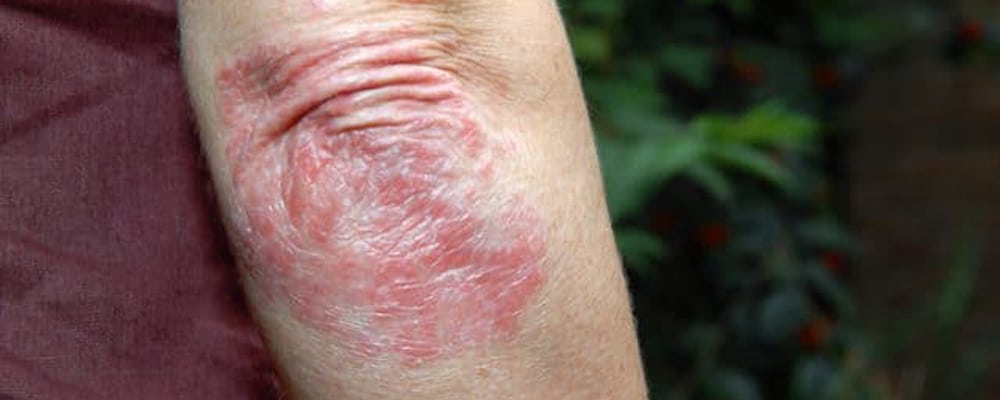What Is Psoriasis?
Psoriasis is an autoimmune skin disease that forms red, scaly patches on different areas of the body. The rash usually heals on its own only to flare up again. The most common areas for psoriasis to appear include:
- Scalp
- Lower back
- Elbows
- Knees
Men and women are at equal risk. Although the disease can strike at any time, it’s most active in adults between the ages of 15 and 35 and with older adults aged 50 to 60.
What Causes Psoriasis?
An autoimmune disease, psoriasis occurs when the immune system is triggered to produce new skin cells too quickly. Normally, the life cycle for skin cells is about 21 to 28 days. For patients with psoriasis, the life cycle is two to six days. This rapid skin renewal cycle tricks the immune system into releasing T cells that try to heal an infection or wound. The chemicals present in T cells cause inflammation. The following factors increase your risk of getting psoriasis:
- Family history
- Prior skin trauma
- Metabolic disorders
- Cardiovascular disease
- Prior cases of strep throat, bronchitis, or tonsillitis- for children
What Are the Symptoms?
Psoriasis symptoms can vary from mild to severe. Common symptoms of psoriasis include:
- Patches of red, flaky, and crusty skin covered with silver-colored scales that easily shed
- Extreme itching and burning in the affected areas
What Are the Different Types of Psoriasis?
There are many different types of psoriasis. However, a majority of patients suffer from a form called plaque psoriasis. These types include:
- Plaque psoriasis: Appears as red, scaly lesions with silvery scales on the elbows, knees, scalp, and lower back.
- Inverse psoriasis: Appears in the armpits, groin, and in skin folds.
- Erythrodermic psoriasis: This severe form causes painful, red inflammation on large portions of the body.
- Guttate psoriasis: This form affects children and leaves small, red patches similar but less pronounced than plaque psoriasis.
- Pustular psoriasis: This rare form affects adults and causes white blisters to form on the hands and feet.
- Psoriatic arthritis: a type of inflammatory arthritis that occurs in some patients with psoriasis. This particular arthritis can affect any joint in the body, and symptoms vary from person to person.
What Is the Diagnosis and Treatment for Psoriasis?
Your doctor will conduct a thorough physical exam, take a skin biopsy, and consider your family history to diagnose psoriasis. Treatment plans differ depending on the type of psoriasis and how severe the symptoms are. Treatment can include:
- Over-the-counter (OTC) topical steroid or non-steroid creams to reduce inflammation
- Keratolytic treatments to reduce flaking
- OTC ointments to reduce itching
- Oral medications including biologics that target T cells
- Phototherapy or light therapy that treats target areas with UV light
- Home remedies like eating a healthy diet, reducing stress, stopping smoking, keeping skin moisturized, and more.
If you have symptoms of psoriasis, contact Skin Care Research or call us at 561-948-3116. Our clinical research center has more than 25 years of experience executing clinical trials focusing on a variety of dermatological conditions.

